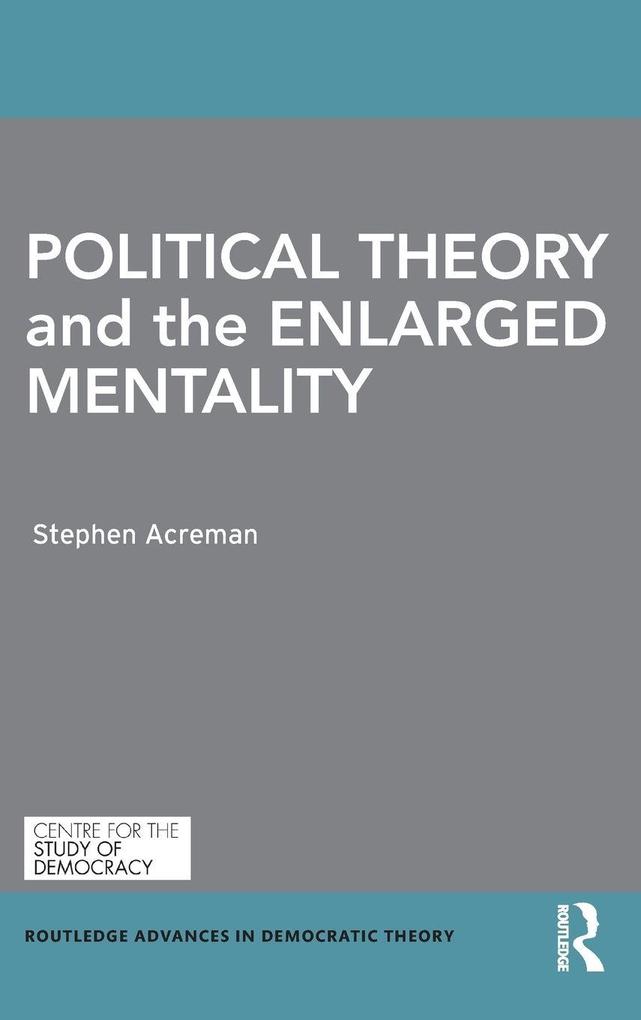In this book, Stephen Acreman follows the development and reception of a hitherto under-analyzed concept central to modern and postmodern political theory: the Kantian ein erweiterte Denkungsart, or enlarged mentality.
¿
.
Inhaltsverzeichnis
1. The Enlarged Mentality in Kant's Third Critique 1.1 'Subjective universality' and the Kantian aesthetic 1.2 The 'enlarged mentality' as a collective epistemology 1.3 Politicizing disinterested pleasure 1.4 The object in reflective judgement 2. The Enlarged Mentality in Political Theory 2.1 Readings of the Sensus Communis 2.2 Hannah Arendt and the political relevance of enlarged thought 2.3 Arendt's Aristotelian sensus communis 2.4 Sociability and the cultivation of taste 2.5 The merging of spectatorship and action 2.6 Arendt's critique of Kant 2.7 The balance of spectatorship and action in a healthy public sphere 2.8 Storytelling and the perspective of the world 3. Judging from the perspective of the world 3.1 Enlargement versus consensus 3.2 Enlargement versus public morality 3.3 Enlargement versus agonism 3.4 Enlargement versus empathy 4. An Enlarged Mentality for the present: facing reality together 4.1 Arendt's phenomenological heritage 4.2 The Human Condition and the world 'in-between' 4.3 Beyond Arendt's critique of modernity 4.4 World alienation and populating the space between men 4.5 Postphenomenology 5. Conclusion










